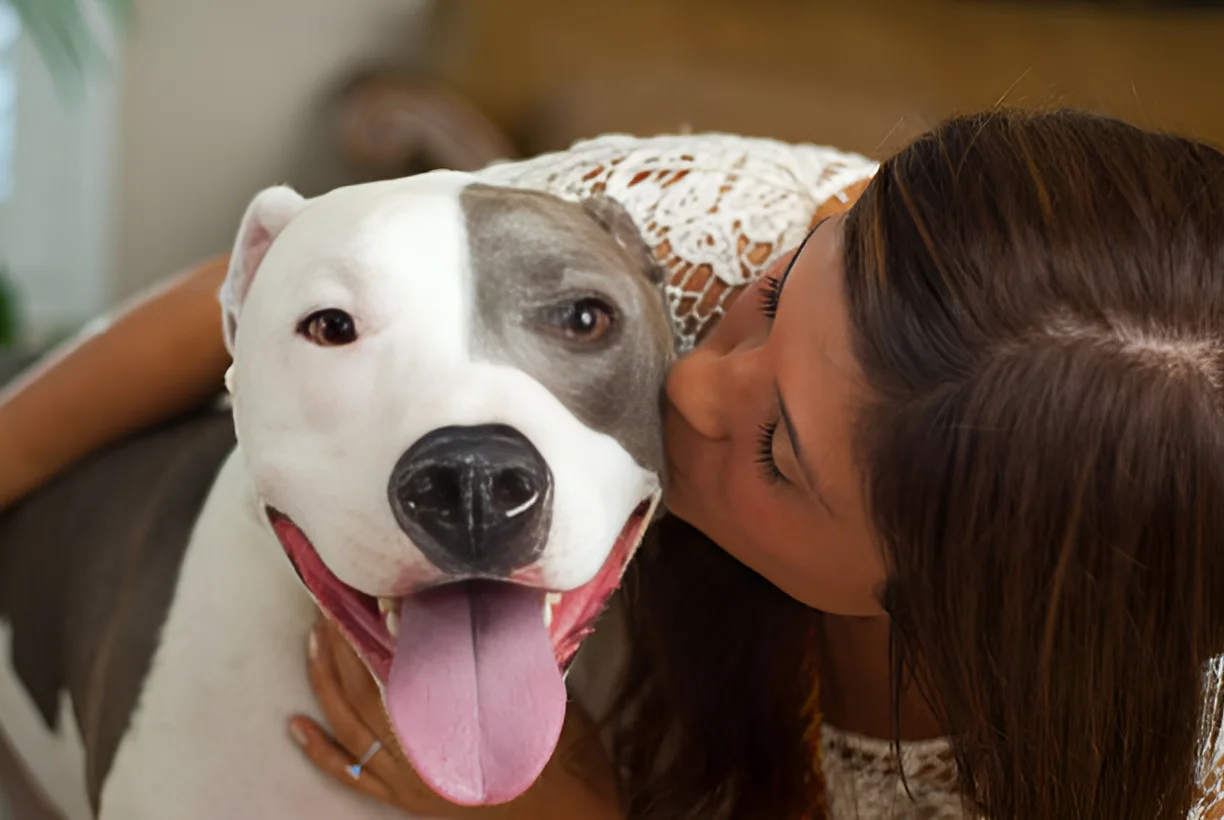Pitbulls do not inherently become aggressive with age; their behavior is influenced by factors such as upbringing, socialization, training, and environment. Pitbulls, often misunderstood and unfairly labeled as inherently aggressive, are actually a product of their environment and experiences. This comprehensive article explores the factors that influence aggression in Pitbulls, debunks common myths, and provides guidance on how to raise a well-adjusted, non-aggressive Pitbull.
Understanding Pitbulls: A Brief History
Origins and Breeding
Pitbulls, originally bred in the 19th century in England, Scotland, and Ireland, were developed from Old English Bulldogs and Terriers. These dogs were initially used for bull-baiting and later for ratting and dog fighting due to their strength, tenacity, and agility. Despite their history, many Pitbulls were also bred to be loyal and affectionate family pets.
Modern Pitbulls
Today, the term “Pitbull” encompasses several breeds, including the American Pit Bull Terrier, American Staffordshire Terrier, Staffordshire Bull Terrier, and American Bully. These breeds share common traits but can vary significantly in temperament and behavior based on their upbringing and environment.
Factors Influencing Aggression in Pitbulls
Genetics and Breed Traits
While genetics play a role in a dog’s behavior, they do not solely determine whether a Pitbull will be aggressive. Pitbulls were historically bred for certain traits, including strength and determination, which can sometimes be misinterpreted as aggression. However, responsible breeding practices and early socialization can mitigate these tendencies.
Socialization and Training
Proper socialization and training are crucial in preventing aggressive behavior in Pitbulls. Early exposure to various environments, people, and other animals helps Pitbulls develop confidence and reduces fear-based aggression. Positive reinforcement training methods, such as rewarding good behavior with treats and praise, are particularly effective.
Environmental Factors
A dog’s environment significantly impacts its behavior. Pitbulls raised in loving, stable homes with consistent routines are less likely to develop aggressive tendencies. Conversely, dogs subjected to neglect, abuse, or inconsistent training may exhibit fear or aggression as a defense mechanism.
Health and Well-being
Health issues can also contribute to changes in behavior. Pain, illness, or discomfort can cause a normally docile dog to become irritable or aggressive. Regular veterinary check-ups and prompt treatment of health issues are essential to maintaining a Pitbull’s well-being.
Common Myths About Pitbull Aggression
Myth: Pitbulls Are Naturally Aggressive
One of the most pervasive myths is that Pitbulls are naturally aggressive. In reality, aggression is not an inherent trait but rather a result of various factors, including upbringing, socialization, and environment. Many Pitbulls are gentle, loving, and well-behaved when raised in a positive environment.
Myth: Pitbulls Have “Lockjaw”
Another common myth is that Pitbulls have a unique jaw structure that allows them to “lock” their jaws. This is false; Pitbulls have the same jaw anatomy as any other dog breed. Their strong bite is due to their muscular build, not a special jaw mechanism.
Myth: Pitbulls Are Unpredictable
Some people believe that Pitbulls are unpredictable and can turn aggressive without warning. However, like any dog, Pitbulls exhibit warning signs before becoming aggressive, such as growling, barking, or showing teeth. Understanding and recognizing these signs can help prevent aggressive incidents.
Signs of Aggression in Pitbulls
Early Warning Signs
Recognizing early warning signs of aggression can help prevent escalation. These signs include:
- Growling or snarling
- Stiff body posture
- Raised hackles
- Intense staring
- Baring teeth
Advanced Signs
If early warning signs are ignored, aggression can escalate to more severe behaviors, such as:
- Lunging or snapping
- Biting
- Persistent barking
- Aggressive posturing
Preventing and Managing Aggression
Early Socialization
Socializing your Pitbull from a young age is one of the most effective ways to prevent aggression. Introduce your puppy to a variety of people, animals, and environments to build their confidence and reduce fear.
Consistent Training
Consistent, positive reinforcement training helps establish boundaries and teaches your Pitbull appropriate behavior. Avoid using punishment-based methods, as these can increase fear and aggression.
Providing Mental and Physical Stimulation
Pitbulls are intelligent and energetic dogs that require regular mental and physical stimulation. Provide plenty of exercise, interactive toys, and training sessions to keep your dog engaged and prevent boredom-related behaviors.
Addressing Health Issues
Regular veterinary care is essential to ensure your Pitbull’s health and well-being. Address any health issues promptly to prevent pain or discomfort from contributing to aggressive behavior.
Conclusion
Pitbulls do not inherently become aggressive with age. Their behavior is shaped by a combination of genetics, upbringing, socialization, training, and environment. By providing a loving, stable home and consistent training, you can raise a well-adjusted, non-aggressive Pitbull. Understanding the factors that influence aggression and taking proactive steps to address them will help ensure a happy, healthy relationship with your furry friend.
The photo featured below the post headline is Credit: wjenningsphotography/istockphoto
I hope you find this post helpful and informative. If Yes’ feel free to share it with your friends!
Frequently Asked Questions
Are Pitbulls more aggressive than other breeds?
No, Pitbulls are not inherently more aggressive than other breeds. Aggression is influenced by factors such as upbringing, socialization, and environment.
Can an aggressive Pitbull be rehabilitated?
Yes, with proper training, socialization, and behavior modification, many aggressive Pitbulls can be rehabilitated. Working with a professional dog trainer or behaviorist is recommended.
How can I prevent my Pitbull from becoming aggressive?
Early socialization, consistent training, providing mental and physical stimulation, and addressing health issues promptly can help prevent aggression in Pitbulls.
Are male Pitbulls more aggressive than females?
Male Pitbulls may exhibit more territorial or hormone-driven aggression, but this can be mitigated through neutering and proper training.
What should I do if my Pitbull shows signs of aggression?
If your Pitbull shows signs of aggression, seek the help of a professional dog trainer or behaviorist. Addressing the issue early can prevent it from escalating.

